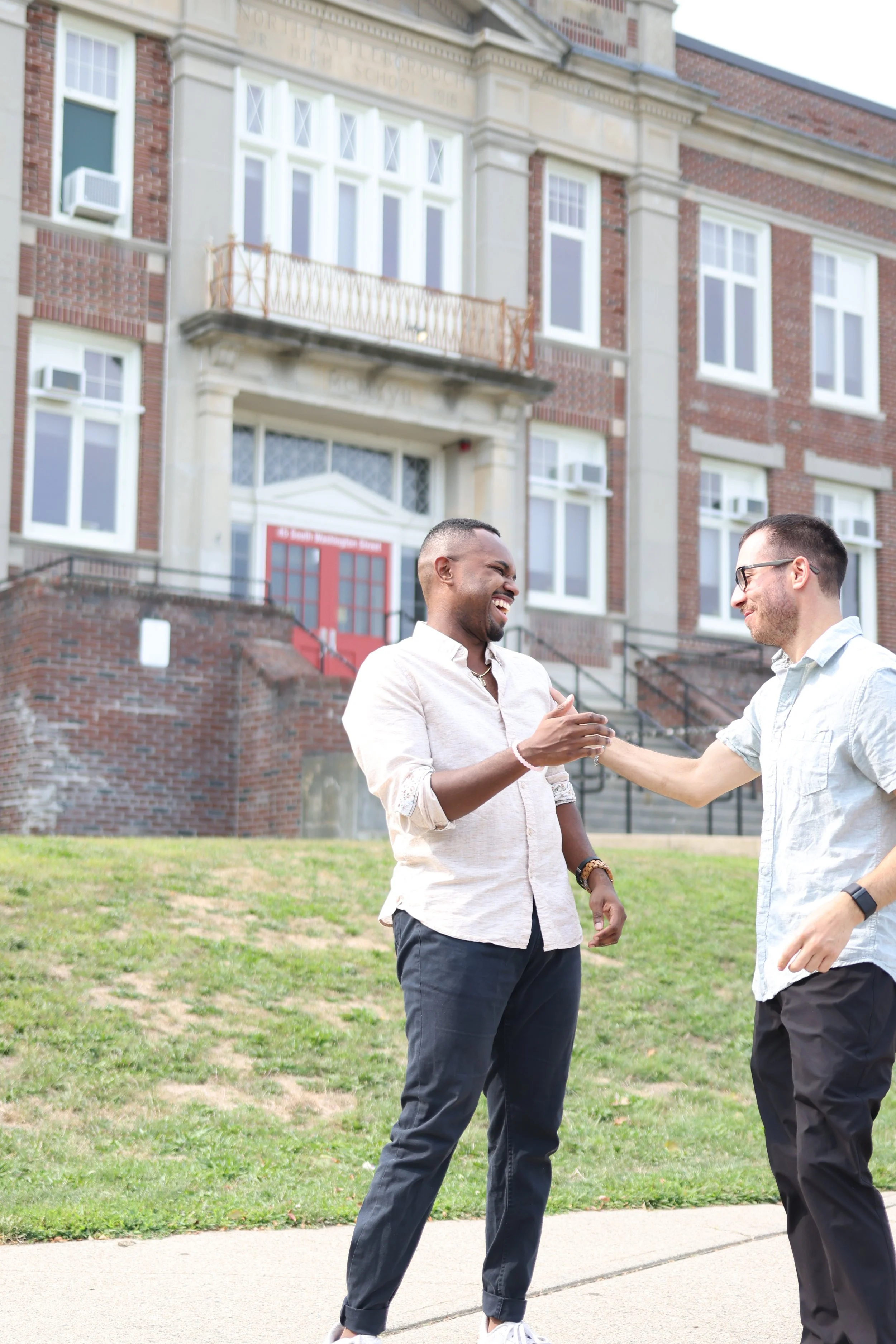
So… you wanna freelance, huh?
Freelancing sounds freeing… until you’re hunched over your laptop at 1:47 a.m., whispering “just one more thing” while your client asks for version nine. In this piece, I unpack the chaotic, hilarious, caffeine-fueled truth about going out on your own as a creative. From undercharging to overdelivering to realizing you’re basically an entire agency wrapped in one exhausted human.

The Hive Mind Isn’t a Bad Thing
They say don’t get too close with your coworkers. “It’s not your family.” “Family comes first.” All true. But let’s be real: you spend more waking hours with your coworkers than you do with your spouse. That’s the stat, folks. Nobody likes hearing it because it makes you realize you spend your life inside a cube farm. But here we are. So if most of your life is going to be spent with coworkers, shouldn’t you at least like them? Better yet, shouldn’t you all start thinking a little like each other? That’s the whole point of a clique, or what people now politely call “culture.”

The Ghosts of our Work
Designers create work that can shape a company’s future, but often, they don’t get to witness the impact. In The Ghosts of Our Work, we dive into the silent struggles of creators, the invisible weight of unrecognized effort, and why the designs we create today might change everything tomorrow even if no one notices until long after we’re gone.

Nobody Understands a New Business Until It Isn’t New Anymore
When you’re building something new, people rarely understand what you’re doing until they can’t imagine life without it. Guest writer and long time friend, Phil Toussaint, shares his perspective on the early, lonely stages of launching a business and why belief has to come before proof.

The War for Truth
Corruption hides in plain sight. It thrives in the systems we trust, the rules we follow, and even the apps we scroll through mindlessly. This piece dives deep into why younger generations are pushing back, how truth-telling has become both weaponized and commodified, and why sometimes the most powerful rebellion is just… being a good person.

Legacy
We think legacy has to be massive: fame, wealth, world-shifting ideas. But the truth? It’s already being written in the everyday. From the way you show up at work to how you love the people around you, legacy is shaped in small actions long before the big ones. This piece reflects on generational shifts, my own hunger for “more,” and why leaving it better than we found it starts right where you are.

Complaining, At What Cost?
We all complain—but do we ever really do anything about it? I’m guilty of it. Guilty as charged. Complaining can serve as a spark, an outlet, even a way to talk yourself into solutions. But too often it becomes a cycle: same gripe, different day, no action. I’ve caught myself turning friends into free therapists, replaying the same story on a loop until even I’m tired of hearing it. The truth is, complaining isn’t the problem. It’s what happens (or doesn’t happen) after.

The Art of Competition
We think of competition as sports, trophies, and scoreboards, but it’s far more ingrained in our daily lives than we realize. From reward systems to biohacking trackers, gamification feeds our instinct to win. Is it healthy motivation, or just another hamster wheel?

The Feedback Loop
"I have a few notes…"
The five words that send creatives into a full-body cringe. This post explores the beautiful, brutal dance of client feedback — the chaos, the collaboration, and why sometimes the best move is saying,
“Let’s talk about why you want that.”

Inspiration vs Influence
What starts as inspiration can quickly become imitation — and in today’s trend-heavy design world, the line gets blurry fast. This piece explores how influence can creep into our creative process, the exhaustion that follows, and why stepping back might be the most original move you can make.

Like, Why Do We Talk Like This?
We’ve all heard it — maybe even said it ourselves (okay, definitely). The word “like” has become a verbal crutch, a social reflex, and a linguistic epidemic. In this piece, I break down how we got here, why we sound like this, and what it might say about us now.

The Only One in the Room
Ever been the only creative in the room?
No team. No one to gut-check your layout. No “that’s fire” Teams message. Just you, your to-do list, and a creeping sense of “am I spiraling or innovating?”
This week on Out Loud, I wrote about the reality of being a one-person creative team. The autonomy, the weird in-between space where you’re both strategist and production artist, boss and intern, confident and second-guessing everything you just designed.
If you’re ever proofed our own final draft five times because there’s no one else to do it; been asked to “ask the creative team” and you are the creative team; or built an entire brand off a to-do list that starts with “email Phil”...
You’ll get it.

I Thought I’d Be Further By Now
I used to think I'd be further by now. You know: smarter, more confident, maybe even have it "figured out." But timelines are strange things. We invent them, chase them, and then punish ourselves when we fall out of sync. This piece isn’t about success. It’s about self-comparison, imposter syndrome, and what it means to still be working on yourself at 28... or any age, really.
